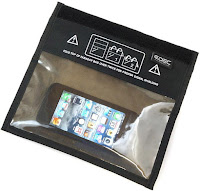Favourite Youtube Technology Channels
As someone who is interested in technology (old and new), here are a few of my go-to YouTube channels. Broadly speaking, these cover current and historical trends in technologies. I think what I enjoy about these channels is that the history of technology is yoked to the histories of people and cultures. AudioPilz The AudioPilz channel, home of shows like Bad Gear and Better Gear (but mostly Bad Gear;). We all love synthesizers, grooveboxes and drum machines but some of them are hated too. Let's take a closer look. Brace yourself for jams, video mashups, memes, real education, electronic music production enlightenment and all kinds of madness. Andrew Robinson Journalist & Reviewer covering audio, home theatre, tech & design. Cathodic Ray Dude (CRD) If I had to pick a theme, I'd say I try to make videos about things we tend not to think can be interesting. Vintage video gear is a big interest, but I've logged far more hours in the computer cock...

